Search
Search Results
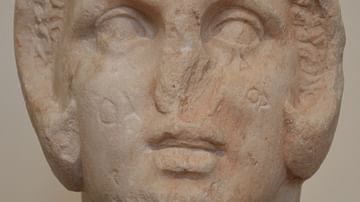
Image
Alexander the Great
Marble head of Alexander the Great, found in the Kerameikos in Athens, c. 300 BCE. Alexander wears the lion’s pelt, a common iconographic feature in depictions of the young king on coins, which hints at his descent from the mythical hero...

Image
Wall Block Inscribed with the Name of Alexander the Great
Marble wall block from the temple of Athena Polias at Priene, inscribed with the name of Alexander the Great, c. 334-330 BCE. The British Museum, London. Around 340 BCE, the inhabitants of Priene were laying out their new city, terraced...

Definition
Treaties of Tilsit
The Treaties of Tilsit were two peace treaties signed in July 1807 by Emperor Napoleon I of France (r. 1804-1814; 1815) and the monarchs of Russia and Prussia in the aftermath of the Battle of Friedland. The treaties ended the War of the...

Definition
Lysimachus
Lysimachus (c. 361-281 BCE) was one of Alexander the Great's trusted bodyguards and a member of his Companion Cavalry. Although he obtained Macedonian citizenship, his father was a Thessalian named Agathocles. After the death of Alexander...
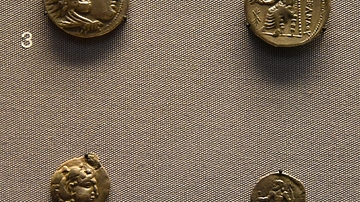
Image
Coins from Macedonia and Sogdia Copying Alexander's Coinage
The State of Sogdia was conquered by the army of Alexander the Great in 327 BCE. The early coins from Sogdia copy the coins of Alexander's Empire, telling us that they were issued after the conquest. Comparisons like this allow ancient coins...
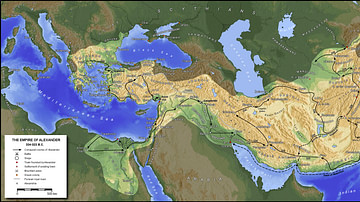
Image
The Empire of Alexander the Great
A map showing the Empire of Alexander the Great, his conquests, and the routes he took (334 BC - 323 BC). Major cities, roads, and battles are indicated.
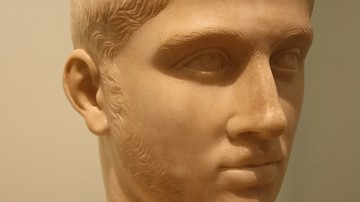
Image
Severus Alexander Bust, Milan
First half 3rd century CE, this marble bust depicts Emperor Severus Alexander (225-235 CE). Unknown provenance.
(Archaeological Museum, Milan)
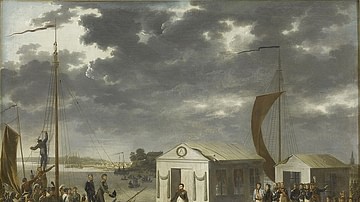
Image
Meeting of Napoleon and Alexander I at Tilsit, 25 June 1807
Emperor Napoleon I of France (r. 1804-1814; 1815) meets with Tsar Alexander I of Russia (1801-1825) on a specially built raft in the middle of the Niemen River to discuss peace. It is one of the most iconic episodes of the Napoleonic Era...
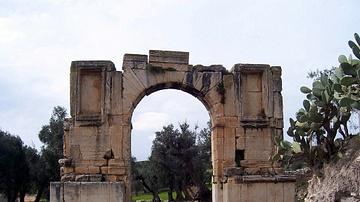
Image
Arch of Alexander Severus, Dougga
The Arch of Alexander Severus is a Roman triumphal arch located in Dougga Tunisia (ancient Thugga). The arch was built in 228 CE, in gratitude to the emperor for his beneficence towards the city. It functioned as one of the city gates, at...
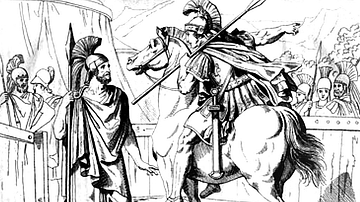
Image
Aristides & Alexander I, 479 BCE
Alexander I the Philhellene visits the Greek camp, revealing Mardonius' battle plans to the Athenian general Aristides.
Source: M. A. Barth - 'Vorzeit und Gegenwart', Augsbourg, 1832 CE